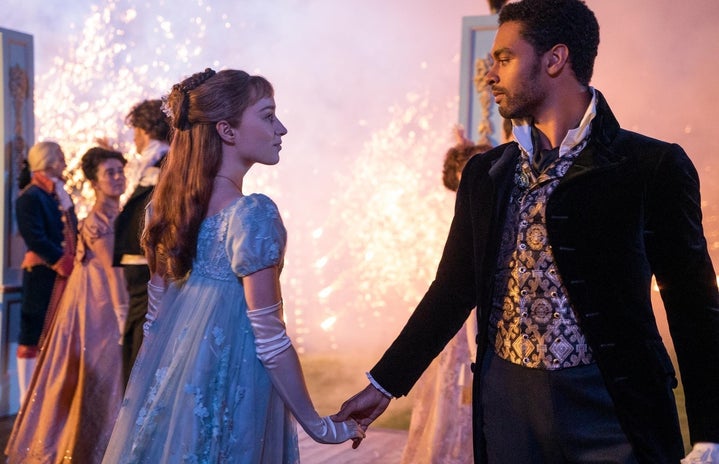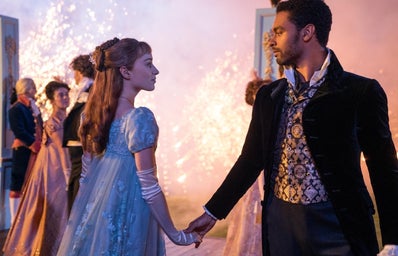The practice of colorblind casting in Hollywood has increased in commonality over the last few years. Recently, we saw colorblind casting in Shonda Rhimes’ Regency era show “Bridgerton,” where actors’ race, gender and age are not regarded when performing their desired role. This technique seemingly allows more diversity in screen and theater, but is it all that it’s cracked up to be?
“We were two separate societies divided by color until a king fell in love with one of us.”
This quote by Lady Danbury, the quick-witted guardian and friend of the Duke of Hastings, is the first mention of race in Bridgerton. It takes place four episodes into season one. Love, Lady Danbury believes, conquers all and solves the issue of race, leading to the colorblind society we see on screen. Simon, The Duke of Hastings, replies in disagreement, believing that their precious society is hanging onto the whims of the white king. While this statement unloads a whole new host of questions, it is the last and only mention of race for the entire season. This lack of discussion might attempt to tear down white privilege, but unintentionally reinforces it by letting white people be free of racial identity.
That is not to say that diversity has not improved in Hollywood by using this technique. While there is still a lot of work to do when it comes to proportionally representing people of color on screen, there is a clear upward trend over the years. In a 2021 Diversity Report written by UCLA’s graduate program of Social Sciences, of all American film leads, 19% were Black Americans, 5.4% were Asian Americans, 5.4% were Latin Americans and 60.3% were white Americans. In terms of overall diversity of films, 51.2% of films had less than 11% of a minority cast. According to the Diversity Report, this was considered one of the least diverse years in casting. Nine years later, only 10.3% of films had this small of a minority cast. Whether this improvement was due to colorblind casting or simply an increase in Black directors casting more Black actors, diversity has increased in Hollywood.
Short-term, colorblind casting is beneficial in casting actors that better represent the current population. Long-term, it may have more harmful consequences. By not talking about race, we are letting whiteness be the default baseline experience for characters in films and television shows. In short, we are forcing actors to choose between taking a role where race is ignored or where race is the whole point. It is a choice that destroys the progress Hollywood makes by casting minority actors to begin with. Why do films, television shows and theaters need to make this all-or-none decision? The backgrounds of characters do not need to be neglected to be acknowledged. “Bridgerton” could have served as both a romantic drama while dealing with the ways people of color have complicated Regency society, a fact that Lady Danbury only hinted at.
In essence, colorblind casting lends itself to escapism. Americans deal with the issue of race daily and might not need to see it on screen as well. However, I cannot help but think that “Bridgerton” missed the opportunity to lend itself to a nuanced exploration of real time racial dynamics. By skipping over slavery and the fervent British Abolitionist movement that flourished in London in the nineteenth century, “Bridgerton” opted to part from intriguing story lines (how did the queen integrate Black people into their society?) and stick to simple character flashbacks.
Casting people of color has always been a sticky discussion in Hollywood. There are pros and cons to most films, and diversity is always the biggest outcry. Directors must also be careful not to create tokenism – the allusion of diversity and inclusion by bringing in a minority character to prevent criticism from others. Color-conscious casting (the opposite of colorblind casting) is also not a perfect technique as it limits the director’s vision to the realities of our world. Colorblind casting improves diversity but neglects important aspects of our society. There is no perfect technique to improve diversity without neglecting Black actors. It is a balance that Hollywood has not found. While “Bridgerton” serves as a step in the right direction, there are still years to go before we see true progress.

